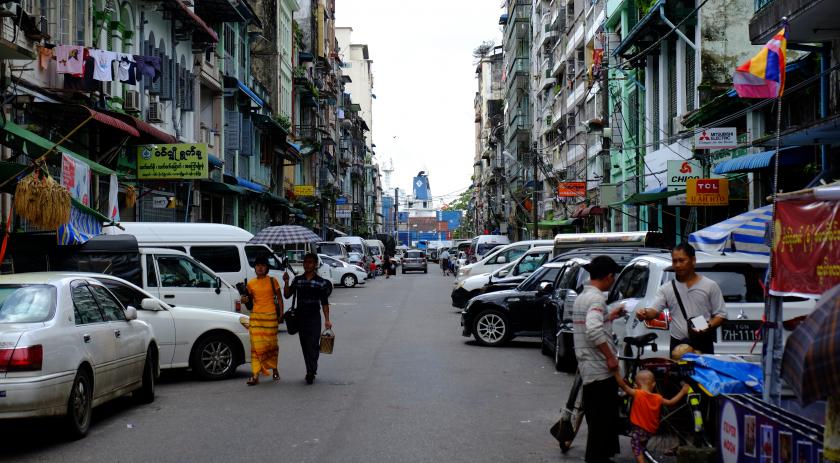
This news is published by Myanmar Times with the following link:
https://www.mmtimes.com/news/enacting-civil-code-could-open-many-doors-myanmar.html
A civil code could open many opportunities for Myanmar, where effective enforcement of laws and regulations remains a serious concern for everyone.
It would be desirable to start with a thorough reform of family law, contract law and property law, which are essential in the day-to-day affairs of the people.
There are several reasons why the modernisation of family law, contract law and property law would be essential.
For example, using the provisions of the Penal Code, such as breach of trust (sections 405 to 409) and cheating (sections 415 to 420), to settle a civil case in relation to a contract could be an effective defence for the clients, but has a severe impact on the collective vision of justice in the country.
It would be preferable to protect the parties in a contract with a number of public policy provisions. Such practice may have the effect of scaring off and slowing down foreign investment in Myanmar if going to jail is to be considered a suitable sanction in a civil dispute.
In property law, the existence of numerous sources causes confusion among locals and foreigners alike. Likewise, the high complexity of family law makes it hard for the courts to find an appropriate solution in dealing with conflict of laws.
Plenty of legal projects have the objective of enhancing Myanmar’s judicial system. However, and even though the legal history of the country has an inherent bond with the tool of legal codification, it has not been implemented yet.
Under Professor Ryugi Okudaira, many law books (called dhammathat in the Myanmar language) were compiled under successive kings. The books consisted of collections of customary rules and judicial decisions, and were one of the major sources for Burmese law in pre-modern Burma.
The most popular was the Manugye Dhammathat, which was probably compiled in 1756 during the reign of King Alaunghpaya, the founder of the Konbaung dynasty (1752-1885). It was printed with an English translation in 1847 by Dr David Richardson, who was the principal assistant to the commissioner of the Tenasserim provinces under British colonial rule. During that time, the court probably used the Manugye Dhammathat as a western code.
In 1860, Major Sparks promoted the lex loci and non-obsolete custom in a civil code called Civil Code of the Province of Pegu. Hence, the Courts of Pegu administered Burmese Law according to this code in all cases of marriage, seduction and adultery, divorce, adoption, inheritance and immoveable property.
In 1924, Burmese nationalists and judges suggested that Burmese customary law should be codified. A codification committee, with Sir Guy Rutledge as its chairman, worked on this matter for a few years. A lecture by U Thein Maung, in particular, reflected widespread concerns about the government’s attempts to codify a law of inheritance.
In 1938, a second commission called the Committee of Burmese Will was established. However, due to a divergence of opinions, the work of these committees remained incomplete.
A civil code is a systematic collection of laws designed to deal with the core areas of private laws such as law of contracts, torts, family law, law of inheritance and sometimes, corporate law.
To facilitate the access and therefore the knowledge of Myanmar law (especially in civil matters), it could be appropriate to enact a civil code. Parliament has jurisdiction to enact family law, contract law and property law.
Moreover, a civil code can respond to the most essential needs of the country.
First, law and culture being intrinsically linked, a civil code can be a reflection on the situation in Myanmar. The law can provide an intellectual debate in other areas such as Burmese language, philosophy or economy.
Second, a civil code would help ensure the understanding of lifestyle in cities and in the countryside and relationships between individuals. Beyond differences (gender, social background, geographical origins), social harmony is needed in Myanmar.
Third, legal certainty is the principle that makes the judicial system reliable, predictable and transparent. A civil code could provide such legal certainty and offer clear guidelines for the judges.
Fourth, a civil code is an economic legal tool for attracting foreign investment. The adoption of a civil code could help Myanmar to be in a better position in the Doing Business Report of the World Bank.
In the 2020 ranking, the country remains in the bottom 25, placing 165th of 190 economies on the overall ease of doing business. Regarding the enforcement of contracts, Myanmar placed 187th.
Fifth and last, a civil code could lead to a legal unity and could be the symbol of political unity in Myanmar. Even if Myanmar will become a federal state, if the entire nation will be under the same laws and same values, the implementation of this project can be time-consuming and might generate intense reaction from many interested parties.
However, with the full support of the highest political authorities, administrations, legal professionals and scholars, the judicial system could be reinforced, and trust in legislation could be restored. A good way to start would be by enacting a civil code.
Rémi Nguyen is founder and managing director of MLR Legal Consultants, and is an affiliated researcher at the Research Institute on Contemporary Southeast Asia.












